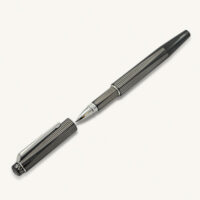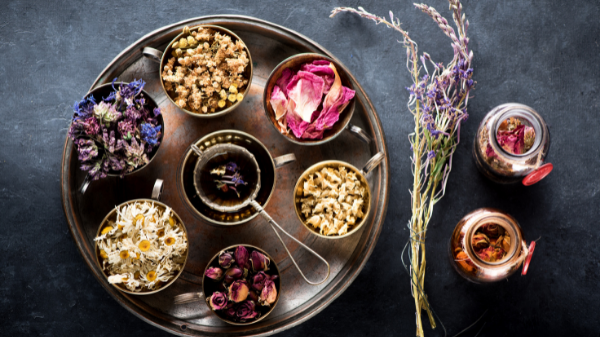Hong Kong is notorious for its high humidity, the blazing hot summers and high humidity can affect the body and cause dampness in the body to accumulate. To curb the this effect, using traditional Chinese medicinal herbs in brewing a home-made remedy to help drain dampness from the body will not only work wonders, but is very easy to do!

What is dampness?
Dampness is a term common to locals, referring to water retention in the body. In Traditional Chinese Medicine, dampness is an underlying factor that can lead to several other health conditions such as cough, phlegm, joint pains, digestive problems, loss of appetite, acne, and low energy, to name just a few. It is believed that dampness is cause by both external environment, such as the weather, food and drinks, as well as internal conditions – how our organs function.
How to prevent dampness accumulating in the body?
The best way to avoid dampness from accumulating in the body is to maintain a healthy lifestyle with a balanced diet and exercise.
It may be refreshing to quench your thirst with a cold beverage during the warmer weather, but it may also be the culprit to your respiratory, digestive and joint issues. TCM doctors believe that consuming too much raw and cold food, such as sushi and iced drinks affects the way the spleen functions.
Physical activities, on the other hand, keeps the spleen, kidney and lungs active, keeping the qi in your body to circulate better, improve fluid metabolism and encourages the dampness in the body to be released. If you aren’t keen on breaking a sweat, sunbathing, saunas and hot baths are also fun, viable options.

Also Read: Cupping Therapy: The different types, which to go for and where?
Ingredients that drain dampness in the body
However, if the dampness in the body is excessive enough to cause discomfort, illness and aches in the body, you might want to consider TCM herbs to drain dampness from the body. There are about 21 medicinal herbs that help relieve dampness in the body, here we’ve listed the most common found ingredients that you can easily prepare at home.
Dried Tangerine Peel

Dried Orange Peel helps regulate the qi and fortifies the spleen. It helps drain dampness, improves digestion, and reduces phlegm.
How to prepare it: Soak and rinse the dried orange peel in cold water. Then, add peels to boiling water until soft, and drink. The steam itself should be provide relief from headaches and make the room smell refreshing, while the beverage will help relieve cough and phlegm.
Licorice Root

Licorice Root is an ingredient used in Traditional Chinese Medicine, but can also be found in diet supplements too. It is praised for its anti-inflammatory properties that help relieve digestive and menopausal symptoms, as well as eliminating bacterial and viral infections from the body. It has been claimed that this medicinal root has been beneficial in preventing SARS and H1N1 influenza in some people.
How to prepare it: To a pot, add licorice root with a cup of water to brew. To relieve sore throat and cough, add a cinnamon stick and a slice of ginger. Licorice roots are naturally sweet, so there is no need to add sugar.
Also Read: Beyond Beauty: Five wellness benefits of Gua Sha
Fu Ling (Poria)

Poria, known as Fu Ling is a type of fungus that serves great health benefits. It is used to promote fluid metabolism, dis-inhibit urination and relieve edema and digestive problems. It is can also improve qi in the spleen, improve appetite, and calms the spirit, which may benefit those suffering from insomnia or anxiety.
How to prepare it: Soak the Fu Ling in water overnight. Then, boil it in four cups of water on high heat for at least 30 minutes before cooling it down. Once cooled, blend it into a paste and add to the fu ling water it was boiled in. It can be combined with tangerine or orange peel for a sweeter taste and to complement the benefits of both ingredients. It can also be used in boiling soup.
Coix Seed (Coix Barley)

Coix seed, sometimes referred to coix barley, is known to have anti-allergic, anti-pyretic and detoxification properties, perfect for pollen allergy season, and to relieve digestion problems – including diarrhea, joint pains, even improving the skin’s complexion.
How to prepare it: Rinse and soak the coix seed in water for about an hour. Then boil in the same water for an hour. Add chrysanthemum flowers or honey for a sweeter taste. Alternatively, you can simply place the coix seed in a tea bag or tea sieve and sit them in boiling water.
Also Read: Tea Time – A comprehensive guide to China’s myriad brews



